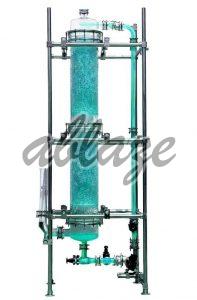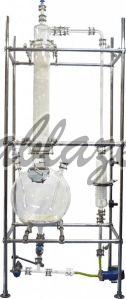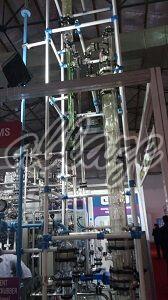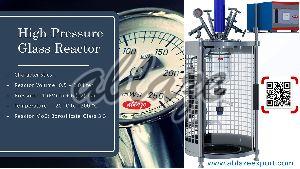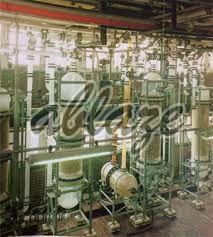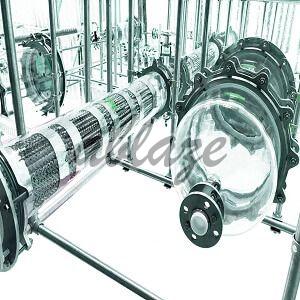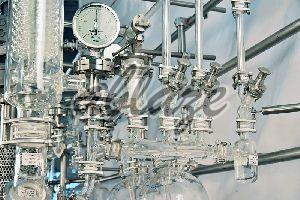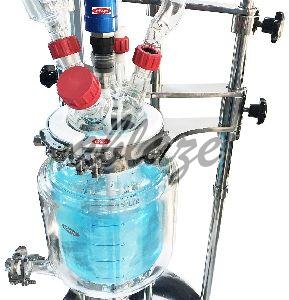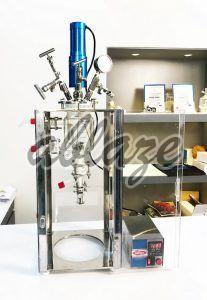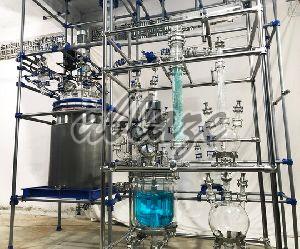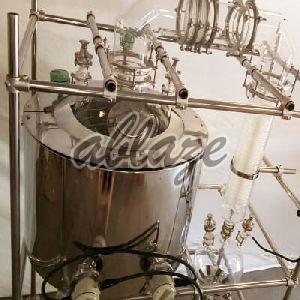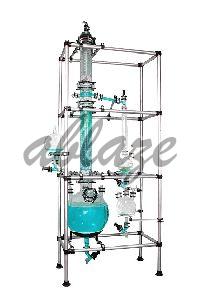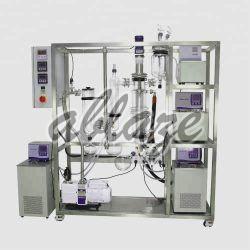| Business Type | Manufacturer, Exporter, Supplier |
| Material | Steel |
| Shape | Round |
| Application | Industrial |
| Click to view more | |
Product Details
Industries conduct a variety of processes as a result of which Hydrogen chloride is formed as a waste gas or a by-product. Every country has its strict guidelines concerning their emission levels for hydrogen chloride that helps maintain the HCL waste gas levels. It can be achieved by conducting the scrubbing process that will take out all the waste gas by absorbing it and producing a hydrochloric acid by-product.
Hydrogen chloride is believed to have a high inclination towards the water. It can be absorbed easily as long as an acceptable method is identified to establish contact between the gas and the water. Hydrogen chloride absorption into the water may emit a significant amount of heat that must be removed from the system. Maximum concentration can be achieved theoretically as it relies on the temperature as well as considering the partial pressure of HCI present in the exhaust gas while entering the plant.
The suitability of the HCL absorption process depends upon a specific application concerning the nature of the feedstock and the requirement of the product. The three fundamental types of the HCL Gas Absorber are Continuously, or Batch wise operated scrubbers, Adiabatic and Isothermal absorbers.
Adiabatic Type
HCL Gas absorber systems are useful in absorbing the Hydrochloric gas which is legally not allowed to let out free into the atmosphere, as it may help in producing the Hydrochloric acid.
Hydrogen Chloride is considered to be highly soluble in water. Still, the absorption process is convoluted by the extreme heat of solution and the partial pressure coming over the warm concentrated solutions. Practically, the fundamental problem you will face while making concentrated solutions is to have an efficient heat removal process. Using this type of absorber will help you absorb the heat and remove it via the evaporation process of water and acid in the system. The condensed vapor is then diluted along with the makeup, and hence most of it is removed through the condenser. Cooling and the concentration of the liquid phase are supported by the water evaporation process to preserve the vapor-liquid equilibrium levels in the lower part of the section.
Working Principle of HCL Gas Absorber
Hydrogen chloride has the best soluble properties and inclination towards the water; it becomes easy for the absorption process to get accomplished effortlessly. The Hydrogen Chloride absorption into the water can emit a tremendous amount of heat, and this heat needs to be disposed of from the system, or else it may cause considerable damage to the system. The maximum concentration can be achieved theoretically as it relies on the temperature as well as considering the partial pressure of HCL present in the exhaust gas while entering the plant.
The suitability of the HCL absorption process depends upon a specific application concerning the nature of the feedstock and the requirement of the product.
Types of HCL Gas Absorbers
The three kinds of HCL Gas Absorbers are as follows
- HCL Scrubbers operated batch-wise.
- Adiabatically - Continuously operated.
- Isothermal absorbers.
Table
The column mentioned below is built with a series of packed sections, which has a gas introduction point, a Condenser, and a Cooler. In this process, the water is poured from the top, and the acid gets collected at the bottom.
HCL absorption columns vary in sizes and are available in the sizes ranging between 80DN to 300DN diameter, where the gas rate varies between 10 Kgs/hr to 300 Kgs/hr approximately.
Diagram
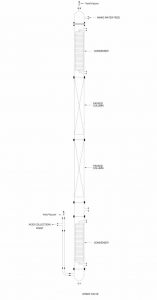
Technical Specification
| Packed Column | Condenser HTA (m2) | Gas Rate (Approx.) | CAT. REF. |
| 80mmx3m | 0.35m2x2 | 10Kg/hr | AHCL3 |
| 100mmx4m | 0.5m2x2 | 20Kg/hr | AHCL4 |
| 150mmx4m | 1.5m2x2 | 60Kg/hr | AHCL6 |
| 225mmx4.5m | 2.5m2x2 | 150Kg/hr | AHCL9 |
| 300mmx4.5m | 2.5m2x2 | 300Kg/hr | AHCL12 |

